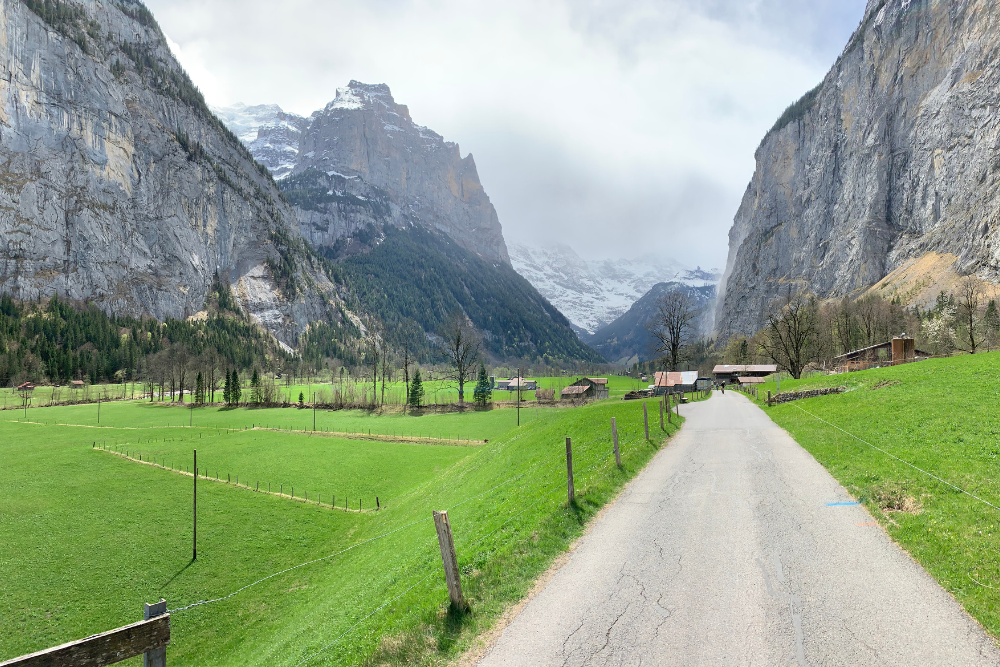Switzerland is known for its pristine landscapes, efficient public transport, and commitment to sustainability, making it one of the best destinations for eco-conscious travelers. From the towering Alps to crystal-clear lakes and picturesque villages, Switzerland offers countless ways to explore responsibly while minimizing your environmental impact.
This guide covers eco-friendly travel tips, sustainable destinations, and green activities to help you experience Switzerland while preserving its natural beauty.
1. Choose Sustainable Transportation
1.1 Travel by Train: The Swiss Rail Network
Switzerland’s public transportation system is among the most efficient and eco-friendly in the world. The Swiss Federal Railways (SBB) runs primarily on hydroelectric power, making train travel a low-carbon alternative to cars and flights.
- The Swiss Travel Pass allows unlimited travel on trains, buses, and boats, encouraging sustainable tourism.
- Scenic trains like the Glacier Express, Bernina Express, and GoldenPass Line offer breathtaking views without harming the environment.
- Night trains to and from Switzerland reduce the need for short-haul flights.
1.2 Use Electric or Hybrid Cars
If you prefer driving, opt for an electric (EV) or hybrid car. Switzerland has an expanding network of EV charging stations, making it easy to travel sustainably. Car-sharing services like Mobility offer eco-friendly vehicle options.
1.3 Explore by Bike or Foot
- Many Swiss cities, including Zurich, Geneva, and Bern, have well-developed cycling paths.
- Free or low-cost bike rental programs, such as PubliBike, are available in major urban areas.
- Hiking is an excellent way to explore Switzerland’s natural beauty without any carbon footprint.
2. Stay in Eco-Friendly Accommodations
2.1 Green Hotels and Lodges
Switzerland has a growing number of eco-certified hotels that prioritize sustainability through renewable energy, waste reduction, and water conservation. Some top choices include:
- Whitepod Eco-Luxury Hotel (Valais) – A collection of geodesic pods that run on renewable energy.
- Hotel Gstaad Palace (Gstaad) – Uses solar energy and sources food locally.
- Biohotel St. Daniel (Graubünden) – A fully organic and energy-efficient hotel.
2.2 Sustainable Alpine Huts
For a unique experience, stay in Swiss Alpine Club (SAC) huts, which operate with minimal impact on the environment. Many use solar power and rainwater collection systems.
2.3 Farm Stays and Eco-Lodges
For a more immersive experience, try staying at a Swiss farmstay, where you can enjoy organic food, solar-powered accommodations, and nature-friendly activities.
3. Eat Local and Sustainable Food
3.1 Choose Farm-to-Table Restaurants
Switzerland has a strong farm-to-table movement, with many restaurants focusing on organic, seasonal, and locally sourced ingredients. Look for:
- Hiltl (Zurich) – The world’s first vegetarian restaurant.
- Chez Vrony (Zermatt) – A high-altitude restaurant using locally sourced produce.
- Grottos in Ticino – Traditional stone-house restaurants that serve locally sourced Swiss-Italian dishes.
3.2 Buy Local at Farmers’ Markets
Switzerland’s weekly farmers’ markets offer fresh, organic, and locally grown products. Some of the best include:
- Bern Farmers’ Market (Tuesdays & Saturdays)
- Lausanne Market (Wednesdays & Saturdays)
- Lugano Market (Tuesdays & Fridays)
3.3 Reduce Food Waste
Switzerland actively fights food waste with initiatives like:
- Too Good To Go – A mobile app that lets you buy unsold food at discounted prices from bakeries, cafes, and restaurants.
- Äss-Bar – A bakery chain that sells day-old but fresh bread and pastries to reduce waste.
4. Visit Sustainable and Eco-Friendly Destinations
4.1 Zermatt: A Car-Free Alpine Paradise
Zermatt is one of Switzerland’s most sustainable destinations, as it is entirely car-free. Visitors must arrive by train, and transport within the town is limited to electric taxis and horse-drawn carriages.
4.2 The Lavaux Vineyards: UNESCO-Protected Wine Region
These UNESCO-listed vineyards overlook Lake Geneva and are cultivated using traditional, eco-friendly techniques. Many wineries promote organic and biodynamic farming.
4.3 The Aletsch Glacier: A UNESCO World Heritage Site
Switzerland’s largest glacier, the Aletsch Glacier, is a must-visit for nature lovers. The area promotes sustainable tourism, with well-marked hiking trails and eco-friendly lodges.
4.4 Monte Verità: Switzerland’s Eco-Spiritual Retreat
Located in Ticino, Monte Verità is a nature-focused retreat known for its organic gardens, energy-efficient buildings, and spiritual wellness programs.
4.5 Lake Oeschinen: A Pristine Alpine Lake
One of Switzerland’s most beautiful lakes, Oeschinensee, is only accessible by hiking or cable car, preserving its untouched natural beauty.
5. Reduce Your Environmental Impact While Traveling
5.1 Respect Nature and Wildlife
- Follow the Leave No Trace principle: take only photos, leave only footprints.
- Stick to marked trails to prevent damage to delicate ecosystems.
- Avoid feeding wildlife, as it disrupts natural behaviors.
5.2 Minimize Plastic Use
- Carry a reusable water bottle—Swiss tap water is among the cleanest in the world.
- Bring reusable shopping bags and refuse plastic packaging at stores.
5.3 Choose Sustainable Activities
Opt for eco-friendly outdoor adventures, such as:
- Hiking in the Swiss Alps instead of taking helicopter tours.
- Kayaking or paddleboarding instead of motorized boat rides.
- Skiing at sustainable resorts that prioritize energy efficiency.
5.4 Support Local Communities
- Buy handmade Swiss crafts instead of mass-produced souvenirs.
- Stay in family-run guesthouses rather than large chain hotels.
- Participate in community-based tourism, such as farm visits and cultural workshops.
Conclusion
Switzerland offers countless opportunities for sustainable and eco-friendly travel, making it an ideal destination for responsible tourists. By choosing public transportation, green accommodations, and local food, while respecting nature and supporting local businesses, travelers can enjoy Switzerland’s breathtaking beauty while preserving it for future generations.
Sustainable travel in Switzerland is not just an option—it is a way of life, ensuring that the country remains a pristine paradise for years to come.












